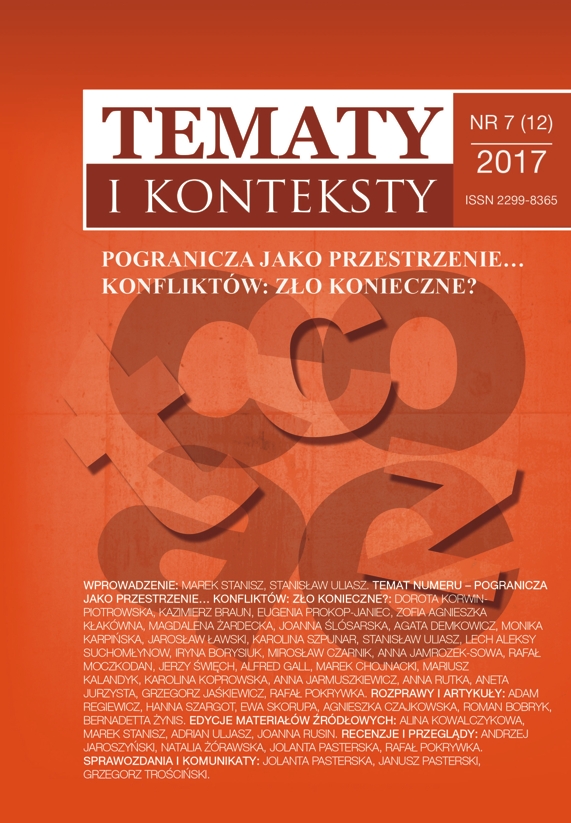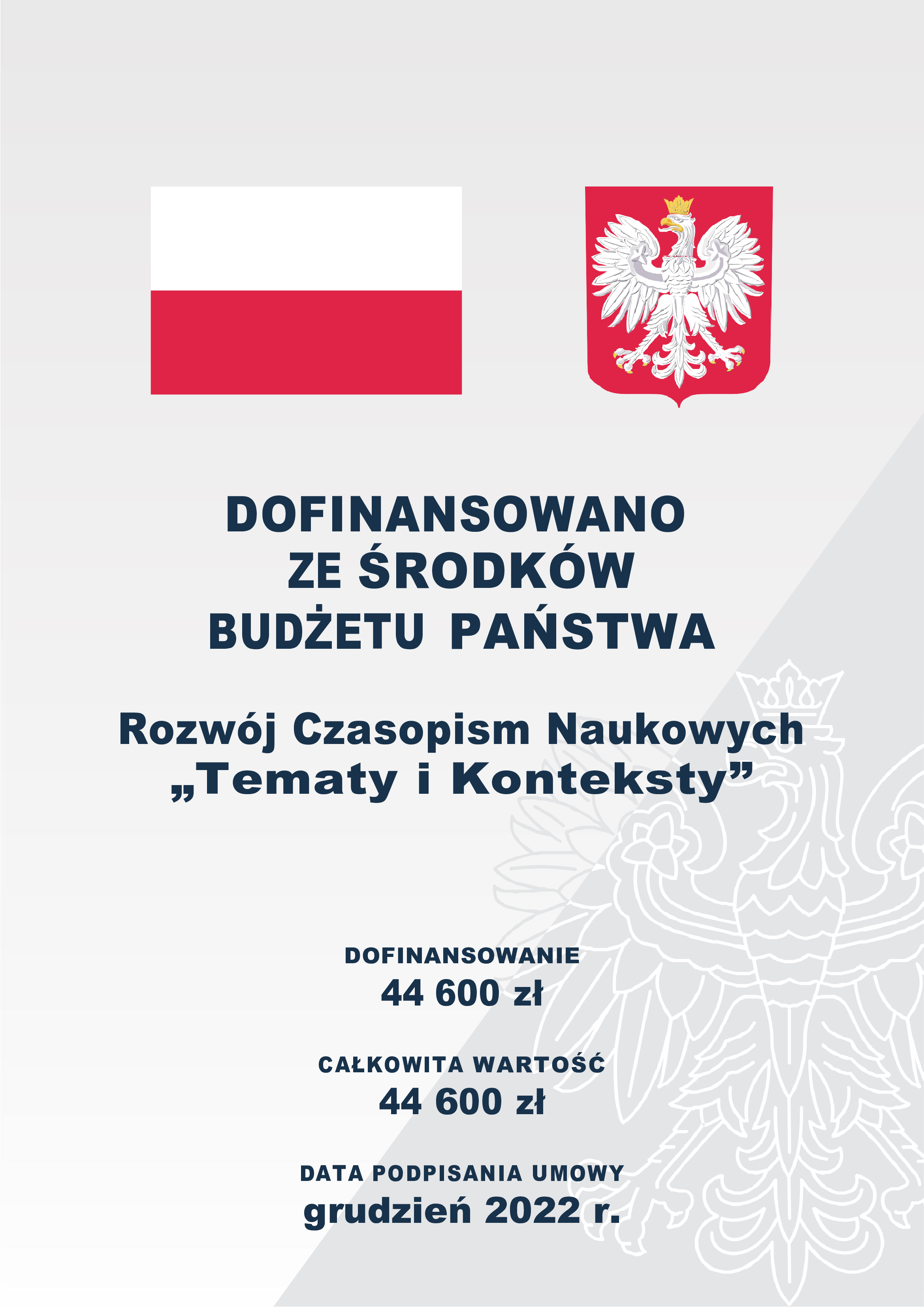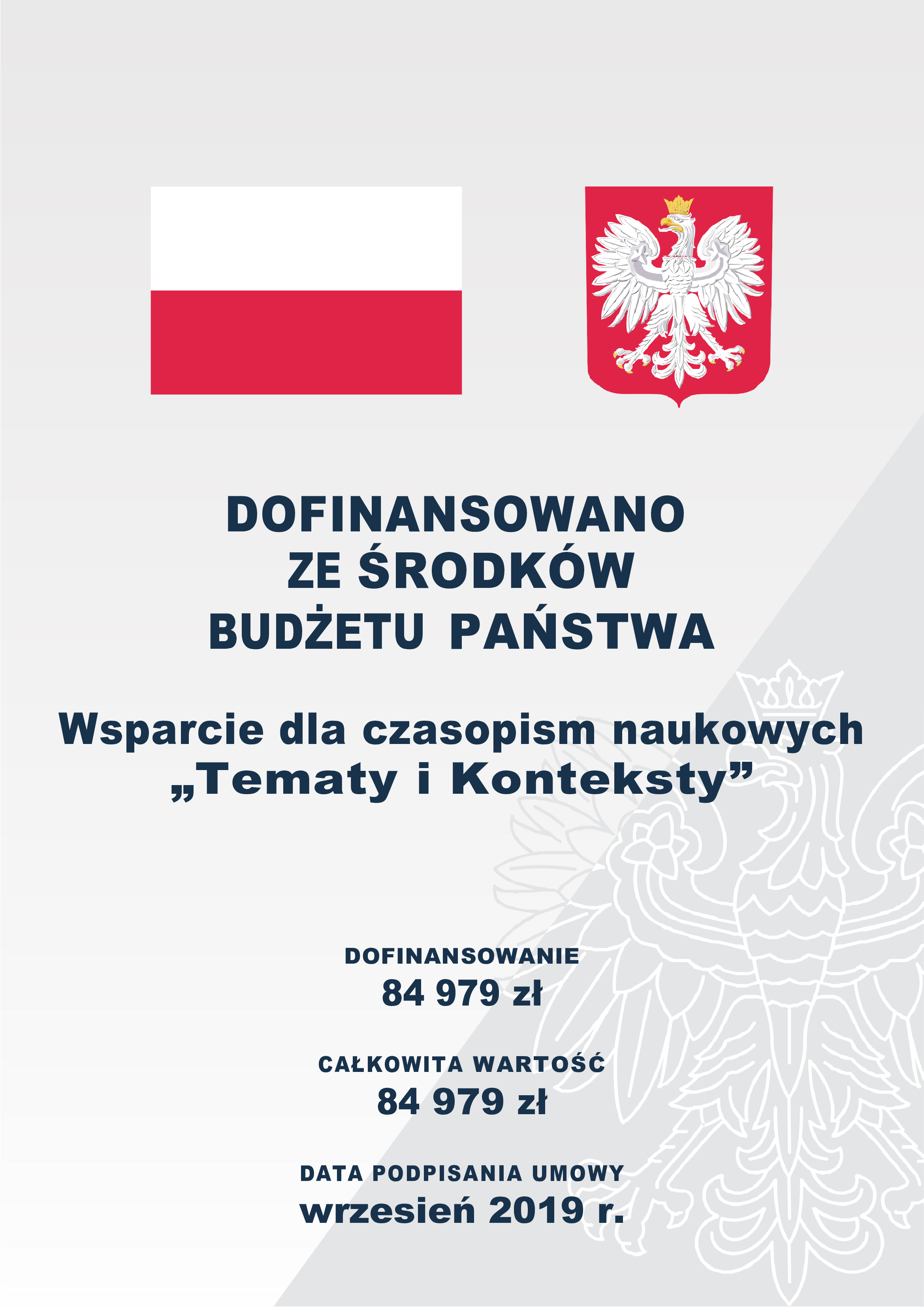Die Entzauberung des Westens in Julia Francks Roman Lagerfeuer
DOI:
https://doi.org/10.15584/tik.2017.26Słowa kluczowe:
realizm, Berlin Zachodni, emigracja, brzydota, NRDAbstrakt
This text is devoted to the phenomenon of realism in postwar German novel on the example of the younger generation author Julia Franck (Born 1970). The tradition of realistic writing in German literature reaches the first half of the 19th century when mainly Georg Büchner postulated and realized realistic art. Consecutive authors, the great realists of the 19th century like Theodor Fontane saw in realism not only the reflection of reality in literature but embellishing it. After World War II great German writers like Böll, Andersch, Koeppen or Walser recalled Western Germany with its society in their realistic novels. Their characteristic feature was objectively marked narration. And Franck’s novel is this way as well. Told from the perspective of four people it shows what was „talked about”. Repatriation or escape to the West did not mean entering paradise. Runaways still experience humiliation, have to deal with the environment and themselves. The esthetic category is ugliness. And from this perspective the lives of heroes/narrators are analyzed.
Downloads
Bibliografia
Büchner G., Gesammelte Werke, München, Goldmann Verlag: 2001.
Fontane Th., Aufsätze, Kritiken, Erinnerungen. Band 1. Aufsätze und Aufzeichnungen, hrsg. von Jürgen Kolbe, Darmstadt: Wissenschaftliche Buchgesellschaft 1969: (=Werke, Schriften und Briefe. Sämtliche Werke. Abteilung 3, Band 1).
Franck J., Lagerfeuer, Köln, DuMont Verlag: 2003, hier die E-book-Asugabe bei Fischer-E-book.
Heselhaus C., Das Realismusproblem, [in:] Begriffsbestimmung des literarischen Realismus, hrsg. von Richard Brinkmann, Darmstadt, Wissenschaftliche Buchgesellschaft, 1969, S. 341.
Kunisch H.-P., Unsichere Fluchtbewegung. DDR-knisternd: Julia Francks Roman, Süddeutsche Zeitung: 30.09.2003.
Pobrania
Opublikowane
Jak cytować
Numer
Dział
Licencja
Prawa autorskie (c) 2017 Tematy i Konteksty

Utwór dostępny jest na licencji Creative Commons Uznanie autorstwa – Użycie niekomercyjne – Bez utworów zależnych 4.0 Międzynarodowe.




